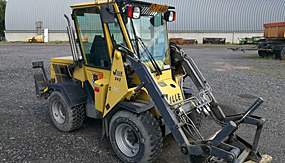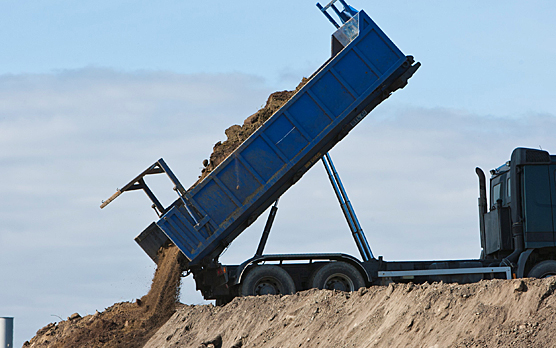
© Kiertonet.fi
A farmer is able to find a spare part for their tractor, a school laboratory is fitted with inexpensive equipment and an earthwork entrepreneur finds the rock material they need close by. Online services for trading items and other resources have become important market places and circular economy pioneers.
A backlash to skip culture
Kiertonet.fi is an online market place for second-hand things, such as furniture, vehicles and machinery.
“I saw useful things that are actually worth money end up going in skips and to landfill, and that got me wondering whether we could change this culture,” says Managing Director Pekka Kallunki from Kiertonet-fi. “In my previous job, I was in charge of public procurement at Sedu, the educational consortium in the Seinäjoki region. Educational institutions would often take things out of use that could not be traded for a good price. This is where I got the idea for our service.”
Kiertonet.fi is primarily intended for operators in the public sector, such as municipalities, government agencies and parishes. However, foundations or associations may also act as sellers, if their operations receive public funding. Anyone can make purchases through Kiertonet: private individuals, companies or public operators.
“All sales are auctions. This ensures open price competition and transparency, which are especially important in the public sector. Anyone can start bidding from zero,” Kallunki says.
One man’s rubbish is another man’s treasure
Things like used cars and tractors, tools and machinery as well as office furniture exchange hands at Kiertonet.fi. You might even find some valuable pieces of furniture and specialist furniture for places like day-care centres and laboratories.
This service is useful for small businesses, for example, as they are able to acquire all the necessary equipment affordably, regardless of their location. The seller, on the other hand, will create revenue from resources they are offering for sale.
“The goal is to promote circular economy in the public sector by extending the useful life of things. We also accept machines that need to be repaired, because our large target group also includes buyers who need spare parts,” Kallunki continues. “We will not let the value of property go to waste, and instead will use resources wisely.”
“We don’t have to hold on to things for long: nearly everything we put up for auction is sold. If it looks like an item is not going to be sold, we agree on an extended auction period or combine different items into one auction,” Kallunki says.
Kiertonet.fi was introduced in the autumn of 2015, and now the service can now see more than 15,000 unique visitors each day. There are approximately one thousand auctions, which typically last for one or two weeks, hosted through the service monthly.
Moving land masses
Waste concrete, aggregate, clay, blasted rock and crushed rock – ten million tonnes of different land masses per year are steered to those who need them through Maapörssi.
“When landfills started to fill up, the reception prices for land mass increased. This led to a growing demand for rationalising the use of land masses and we decided to set up our online service in 2006,” says Managing Director Jari Nordström from Maapörssi.
Maapörssi is primarily intended for operators in the excavation sector, such as construction companies and municipalities, who are the most significant users of the service. However, anyone who needs land mass or has land mass to offer may post their announcement in the service. Currently, 450 businesses use the service to sell land mass, and the service has approximately 1,600 registered users.
“The most valuable land mass will sell in Maapörssi for the market price. Often, however, the land masses are free, in which case supply and demand determine who pays for the transportation costs. In this case, the party offering the mass will save the cost of dumping the mass in a landfill, and the recipient will have the material they need for free,” Nordström says.
The service covers the whole of Finland, but most of the users operate in large growth centres with plenty of construction. The distance between sites is often the deciding factor in terms of the utilisation of land masses; short transportation distances also mean reduced emissions.
“Our goal is to expand the service to Europe, because there are no services like this anywhere else,” Nordström says.

© Maapörssi
Examples of online market places promoting circular economy:
-
Kiertonet.fi An online auction service that public organisations can use to sell property they no longer need.
-
Maapörssi A market place for selling and trading land masses.
-
Materiaalitori An electronic data platform where you can advertise and look for waste, side streams and related services. To be opened in April 2019 (presentation in Finnish).
-
Huutokaupat.com A sales channel for public administration operators and companies to sell valuable property they no longer need.
-
Tori.fi An online platform where anyone can sell things they no longer need and buy second-hand items.
-
Huuto.net An online store where anyone can sell things they no longer need and purchase items from other users.
-
Kuinoma An online service where anyone can offer their things for rent and rent the items offered.